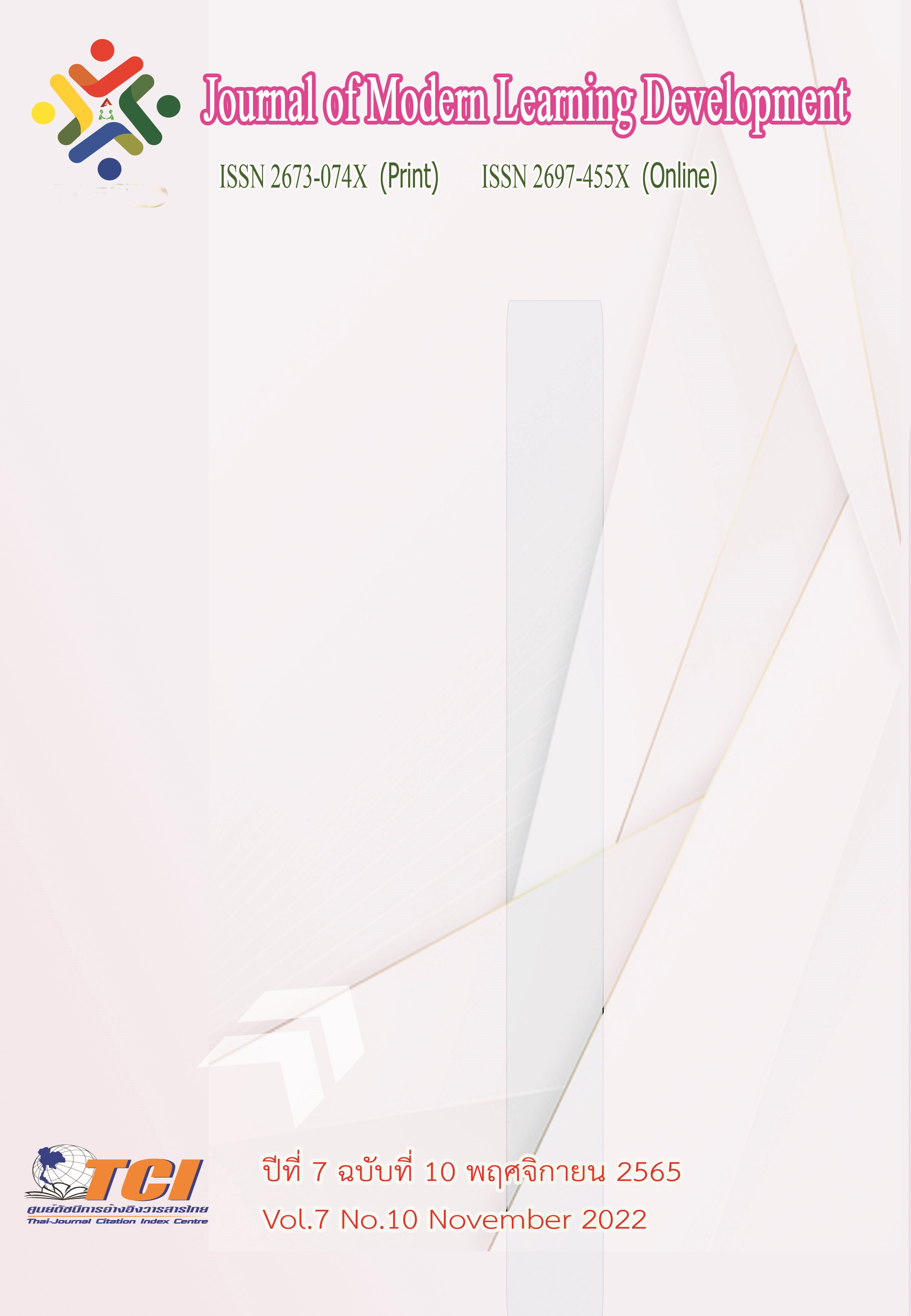The Effect of the Financial Instruments and Cash Flow Onthe Return on Securities of the Listed Companies in Stock Exchange of Thailand
Main Article Content
Abstract
The objective of this research was to study the effect of the financial instruments and cash flow on the return on securities of the listed companies in stock exchange of Thailand. The total number of 393 pieces of data has been gathered from the database of 131 listed companies in the Stock Exchange of Thailand since 2018 through 2020. Independent variables were financial instruments consisted of financial assets and financial liabilities. Cash flow is consisted of the cash flows from operating activities, investing activities and from financing activities. The dependent variable is the return on securities stocks, consisting of market price per value ratio of high-dividend yielding stocks and the ratio of a share price to earnings per share used for statistical analysis, preliminary data analysis with descriptive statistics as well as hypothesis testing with multiple regression analysis.
According to the research, it reveals that the financial liabilities have a positive effect on the share price-earnings ratio and the cash flow from operating activities. Additionally, it has a positive effect on the market price per value ratio while having negative effect on the dividend yield. As the result, the cash flow from investing activities affects the market rate on the account value and that the cash flow from procurement activities also negatively affects the share price-earnings ratio.
Article Details
References
นภาพร ลิขิตวงศ์ขจร. (2562). ปัจจัยที่มีผลต่อการจ่ายเงินปันผลของบริษัทจดทะเบียนในตลาดหลักทรัพย์แห่งประเทศไทย. วารสารบริหารธุรกิจ เศรษฐศาสตร์และการสื่อสาร. 14 (1), 122-35.
ประสิทธิชัย ดอกไม้หอม. (2563). ผลกระทบของกระแสเงินสดต่อความสามารถในการทำกำไรและการประเมินมูลค่าหุ้นของบริษัทจดทะเบียนในตลาดหลักทรัพย์ เอ็ม เอ ไอ. การค้นคว้าอิสระบัญชีมหาบันทิต คณะบัญชี. บัณฑิตวิทยาลัย: มหาวิทยาลัยศรีปทุม.
ปิยาภิศักดิ์ เจียรสุคนธ์, บัวจันทร์ อินธิโส และ ดวงฤทัย ณ นครพนม. (2561). ทิศทางของกระแสเงินสดที่มีต่อ
ราคาตลาดต่อกำไรและราคาตลาดต่อราคาตามบัญชีของบริษัทจดทะเบียนในตลาดหลักทรัพย์แห่งประเทศไทย. วารสารศิลปศาสตร์และวิทยาการจัดการ มหาวิทยาลัยเกษตรศาสตร์. 5 (2), 1-11.
พรรณุภา ธุรนิมิตรกุล. (2551). การเงินธุรกิจ. (พิมพ์ครั้งที่ 4). กรุงเทพมหานคร: สำนักพิมพ์มหาวิทยาลัยธรรมศาสตร์.
รัตนา ศรีนวน, พัทธนันท์ เพชรเชิดชู และ ศิริเดช คำสุพรหม. (2563). ผลกระทบของประสิทธิภาพทาง เทคนิคและการใช้ประโยชน์สินทรัพย์ทางการเงินต่อผลการดำเนินงานด้านการเงินและมูลค่า องค์กรตามราคาตลาดของบริษัจดทะเบียนในตลาดหลักทรัพยแห่งประเทศไทยกลุ่มสถาบัน การเงิน. Suthiparithat (Journal of Business Innovation: SJBI). 34 (112), 199-219.
สภาวิชาชีพบัญชีในพระบรมราชูปถัมภ์. (2562). มาตรฐานการบัญชี ฉบับที่ 7 (ปรับปรุง 2563) เรื่องงบกระแสเงินสด. ออนไลน์. สืบค้นเมื่อ 22 กันยายน 2564. แหล่งที่มา: https://acpro-std.tfac.or.th/standard/51


